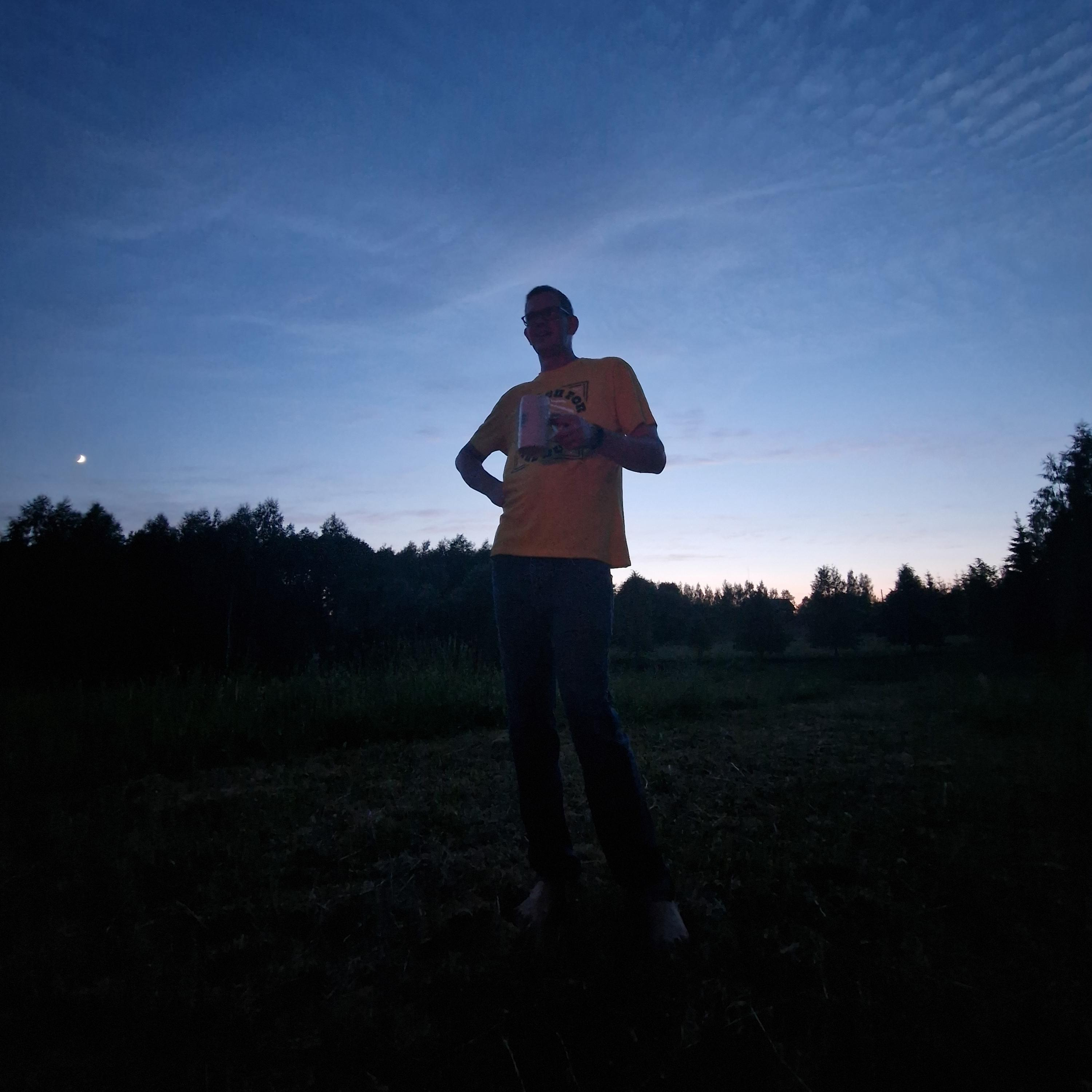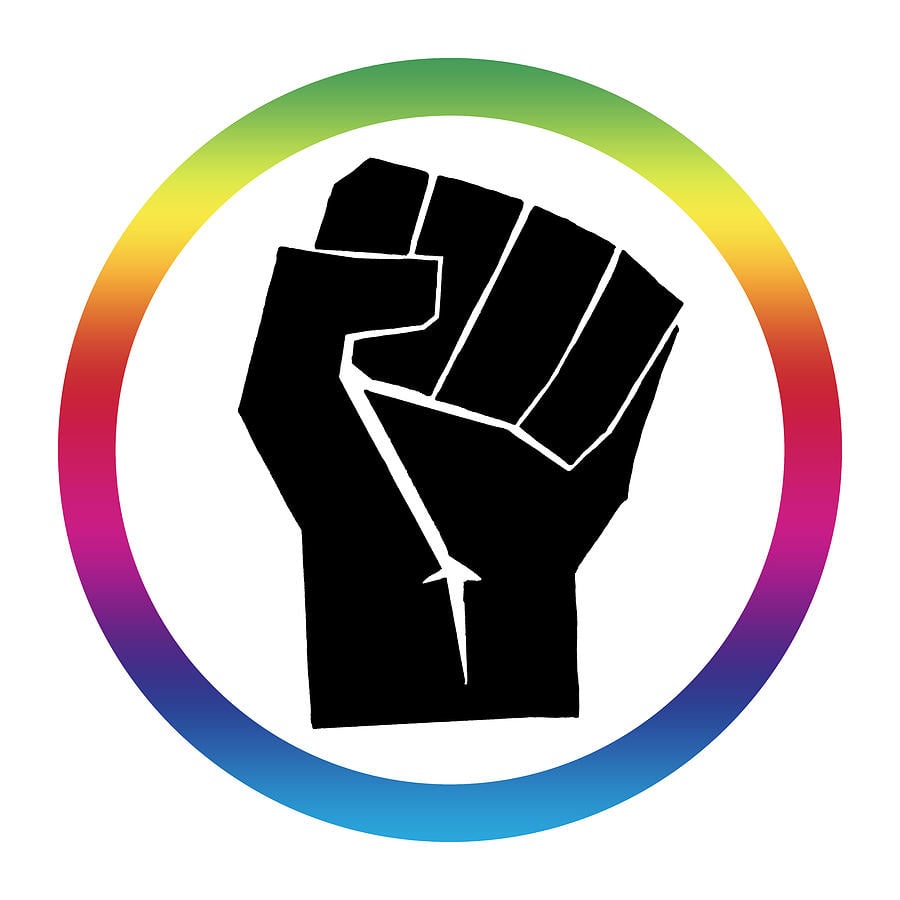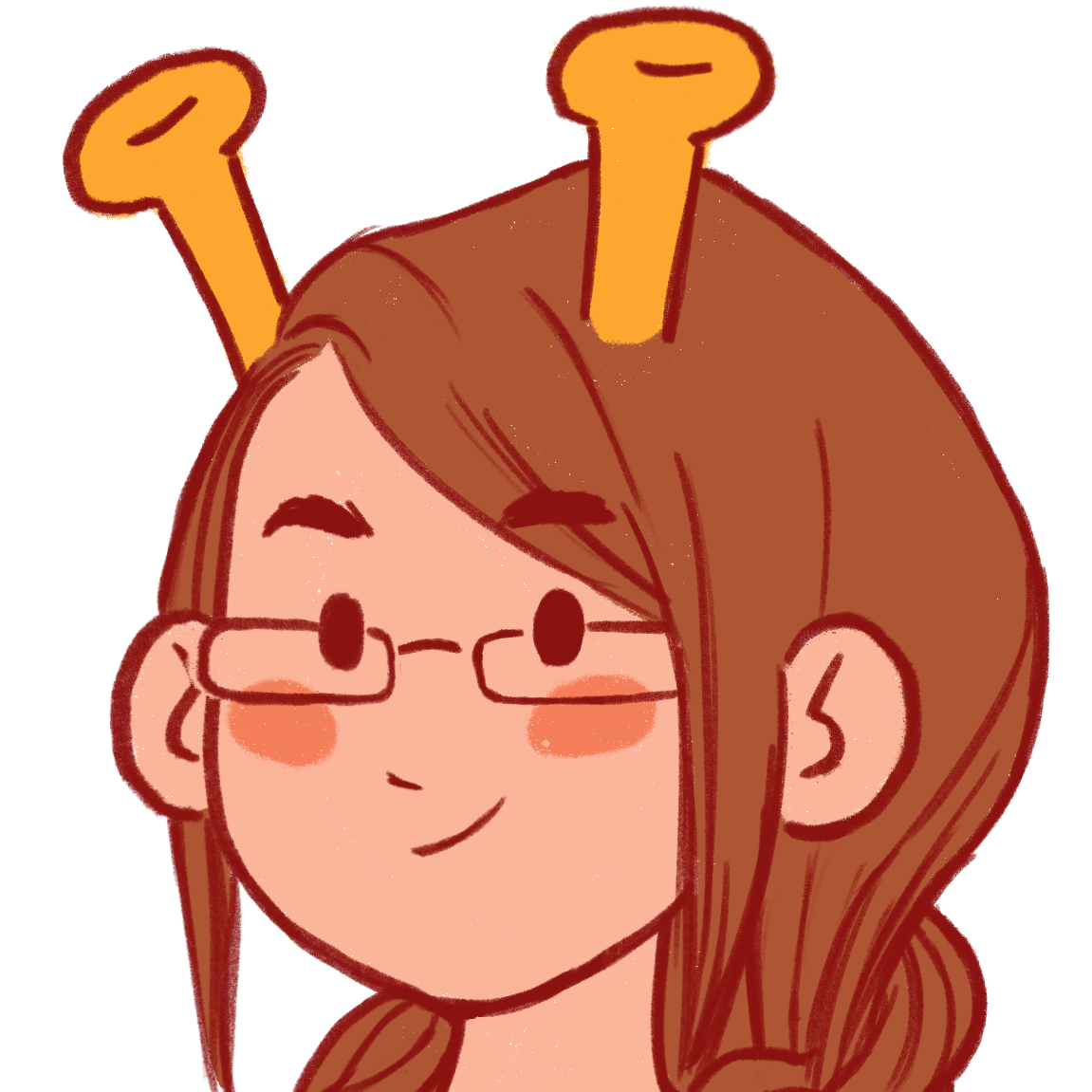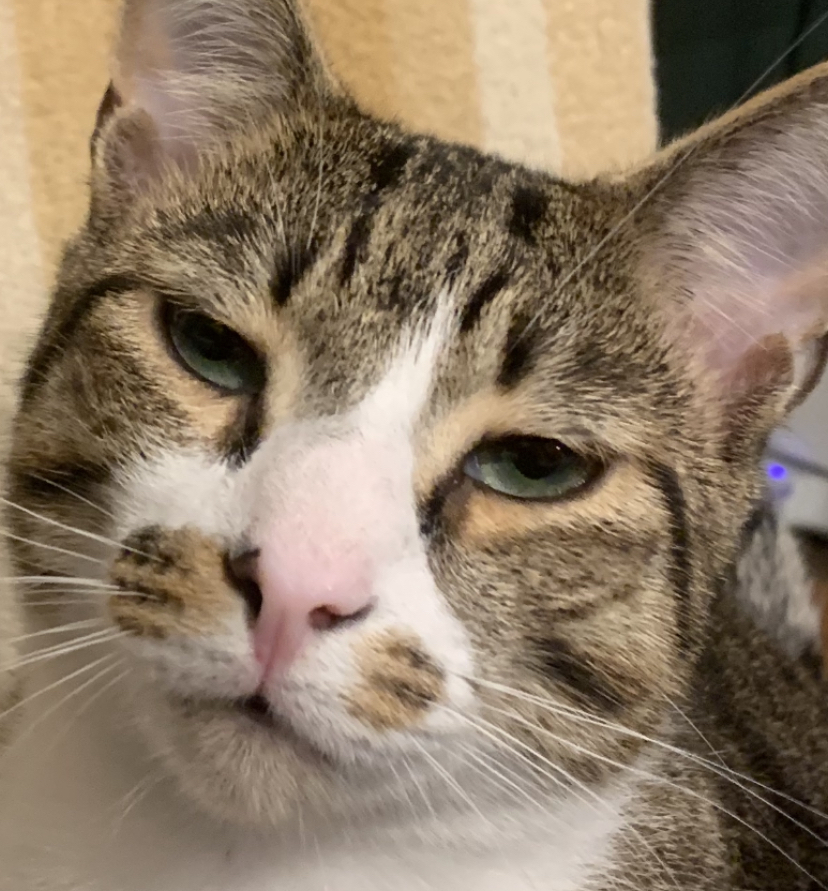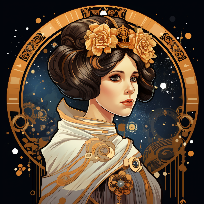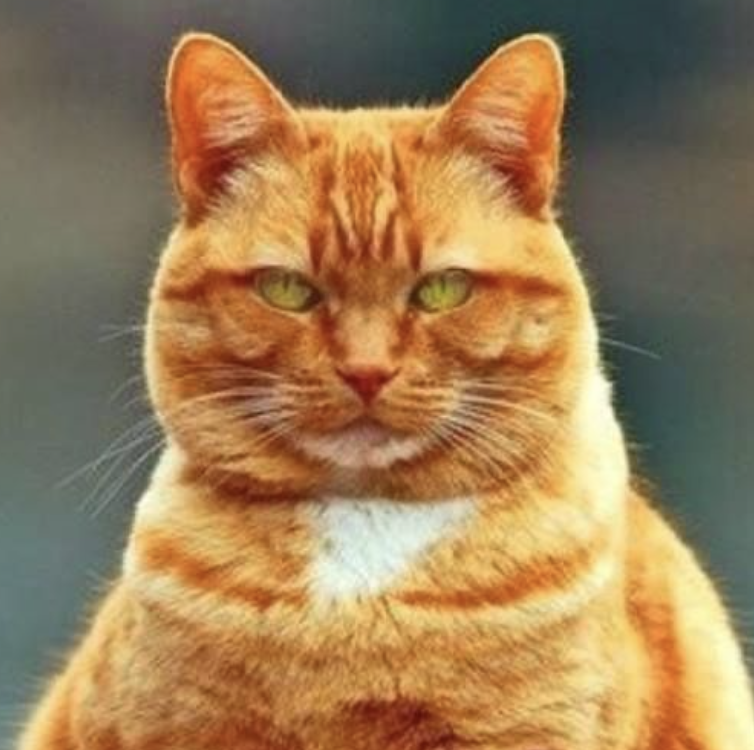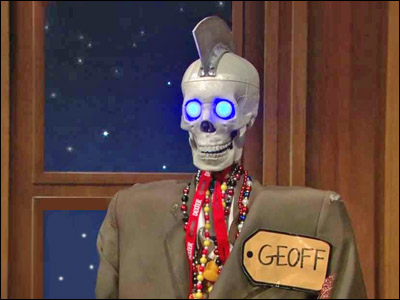More than 100 days into the writers strike, fears have kept mounting over the possibility of studios deploying generative artificial intelligence to completely pen scripts. But intellectual property law has long said that copyrights are only granted to works created by humans, and that doesn’t look like it’s changing anytime soon.
A federal judge on Friday upheld a finding from the U.S. Copyright Office that a piece of art created by AI is not open to protection. The ruling was delivered in an order turning down Stephen Thaler’s bid challenging the government’s position refusing to register works made by AI. Copyright law has “never stretched so far” to “protect works generated by new forms of technology operating absent any guiding human hand,” U.S. District Judge Beryl Howell found.
The opinion stressed, “Human authorship is a bedrock requirement.”
The push for protection of works created by AI has been spearheaded by Thaler, chief executive of neural network firm Imagination Engines. In 2018, he listed an AI system, the Creativity Machine, as the sole creator of an artwork called A Recent Entrance to Paradise, which was described as “autonomously created by a computer algorithm running on a machine.” The Copyright Office denied the application on the grounds that “the nexus between the human mind and creative expression” is a crucial element of protection.
Thaler, who listed himself as the owner of the copyright under the work-for-hire doctrine, sued in a lawsuit contesting the denial and the office’s human authorship requirement. He argued that AI should be acknowledged “as an author where it otherwise meets authorship criteria,” with any ownership vesting in the machine’s owner. His complaint argued that the office’s refusal was “arbitrary, capricious, an abuse of discretion and not in accordance with the law” in violation of the Administrative Procedure Act, which provides for judicial review of agency actions. The question presented in the suit was whether a work generated solely by a computer falls under the protection of copyright law.
“In the absence of any human involvement in the creation of the work, the clear and straightforward answer is the one given by the Register: No,” Howell wrote.
U.S. copyright law, she underscored, “protects only works of human creation” and is “designed to adapt with the times.” There’s been a consistent understanding that human creativity is “at the core of copyrightability, even as that human creativity is channeled through new tools or into new media,” the ruling stated.
While cameras generated a mechanical reproduction of a scene, she explained that it does so only after a human develops a “mental conception” of the photo, which is a product of decisions like where the subject stands, arrangements and lighting, among other choices.
“Human involvement in, and ultimate creative control over, the work at issue was key to the conclusion that the new type of work fell within the bounds of copyright,” Howell wrote.
Various courts have reached the same conclusion. In one of the leading cases on copyright authorship, Burrow-Giles Lithographic Company v. Sarony, the Supreme Court held that there was “no doubt” that protection can be extended to photographs as long as “they are representative of original intellectual conceptions of the author.” The justices exclusively referred to such authors as human, describing them as a class of “persons” and a copyright as the “right of a man to the production of his own genius or intellect.”
In another case, the a federal appeals court said that a photo captured by a monkey can’t be granted a copyright since animals don’t qualify for protection, though the suit was decided on other grounds. Howell cited the ruling in her decision. “Plaintiff can point to no case in which a court has recognized copyright in a work originating with a non-human,” the order, which granted summary judgment in favor of the copyright office, stated.
The judge also explored the purpose of copyright law, which she said is to encourage “human individuals to engage in” creation. Copyrights and patents, she said, were conceived as “forms of property that the government was established to protect, and it was understood that recognizing exclusive rights in that property would further the public good by incentivizing individuals to create and invent.” The ruling continued, “The act of human creation—and how to best encourage human individuals to engage in that creation, and thereby promote science and the useful arts—was thus central to American copyright from its very inception.” Copyright law wasn’t designed to reach non-human actors, Howell said.
The order was delivered as courts weigh the legality of AI companies training their systems on copyrighted works. The suits, filed by artists and artists in California federal court, allege copyright infringement and could result in the firms having to destroy their large language models.
In March, the copyright office affirmed that most works generated by AI aren’t copyrightable but clarified that AI-assisted materials qualify for protection in certain instances. An application for a work created with the help of AI can support a copyright claim if a human “selected or arranged” it in a “sufficiently creative way that the resulting work constitutes an original work of authorship,” it said.
This is the best summary I could come up with:
More than 100 days into the writers strike, fears have kept mounting over the possibility of studios deploying generative artificial intelligence to completely pen scripts.
The ruling was delivered in an order turning down Stephen Thaler’s bid challenging the government’s position refusing to register works made by AI.
Copyright law has “never stretched so far” to “protect works generated by new forms of technology operating absent any guiding human hand,” U.S. District Judge Beryl Howell found.
His complaint argued that the office’s refusal was “arbitrary, capricious, an abuse of discretion and not in accordance with the law” in violation of the Administrative Procedure Act, which provides for judicial review of agency actions.
While cameras generated a mechanical reproduction of a scene, she explained that it does so only after a human develops a “mental conception” of the photo, which is a product of decisions like where the subject stands, arrangements and lighting, among other choices.
In another case, the a federal appeals court said that a photo captured by a monkey can’t be granted a copyright since animals don’t qualify for protection, though the suit was decided on other grounds.
The original article contains 858 words, the summary contains 190 words. Saved 78%. I’m a bot and I’m open source!
On one hand, great; will that extent to software development, architecture and other fields?
On the other hand, sounds like the first step to, when AI and androids reach self awareness and conscience, legally keep them enslaved.
When an AI can make that argument for themselves, then the law can change, until then, a human must be part of the creative process to hold copyright.
A classic example is the monkey selfie. There’s no copyright because there was no human involved in the creation of the selfie.
Well, the opressed and enslaved usually has no say about changing the law.
It’s a good thing that AI isn’t capable of being oppressed or enslaved. Because it’s currently less AI and more, janky code that does a thing, and sometimes does it correctly.
For now. 40 years ago, what it does now was impossible science fiction.
And for the next 40 years it will likely remain science fiction.
So there’s no point in fucking up all the case law for something that doesn’t exist. Seriously, copyright needs to be cut down, not expanded further. It’s already the life of the author plus 70 years. How does that even work? Copyright is meant to get humans to produce more creative works, so how the fuck does that work after death?
The answer is, corporations that don’t die. They want more control, and want AI to make shit, so they don’t have to pay real people to do it.
So no. No copyright for theoretical AI. no copyright for monkeys with names assigned by some third party. Just stop trying to expand copyright.
The Judge is right. AI is not a living citizen.
My 2c:
On projects over a certain revenue the AI could say how much it was influenced (trained on) by the respective copyrighted content and then royalties could go out to the people who own that content in percents.
My 4c:
There could be an intellectual property blockchain and everything that can be used to train an AI gets a token.
Again, I think all of this should only be mandatory for huge corporations, similar to how unreal engine is free under 1 million dollar earnings.
This could also be an interesting way to see how human made content makes its way through the “minds” of AIs.
That would probably be picocents per artist. How do you want to transfer that amount of money?
There could be an intellectual property blockchain
No.
Copywrite law doesn’t distinguish based on the size of the corporation, and I don’t think it should.
couldn’t help but lol at this quote:
US copyright law is designed to adapt to the times.
“To the times Disney pays people off enough…”
Oh it does adapt the time the copyright is valid.
Should have figured this would be the judgment when that monkey took a selfie of itself and the ruling was that it was public domain because a human didn’t take the shot, and monkies don’t have rights.
As a person who creates both visual arts and music, though admittedly for my own enjoyment alone, I can’t bring myself to ever recognize any of the AI generated stuff as Art. None of it is any good if you look at it close. It’s wrong in every way. The machines were supposed to come for our jobs, but that was supposed to mean factory production and construction and shit.
Most of what people generate with AI is shit because the people using it have no idea about art. When an actual artist picks up those tools you get quite different results.
The neat thing is that it doesn’t really matter what kind of artist you are. You don’t need to be a painter, a sculptor has just as trained eyes yet can prompt an oil painting. Heck I’d bet random musicians get significantly better results than the general population.
If you had spent just a few minutes thinking about it, you’d have realised email jobs and creative jobs would be first on the automation chopping block.
A secretary used to schedule events and write invitations manually, now you have calendly and ChatGPT.
You used to need an HR professional to onboard new employees, now you can use on-demand courses through any of the million LMSs that exist.
Oh and there are already AI generative tools for those kinds of online courses.
Meanwhile, even the best robots move like geriatrics. We’re 100 years away from a robot that could do all that a construction worker does.
I work for a company that is automating the onboarding process even more. You type in the name of the person being on boarded and it creates the software licenses, training programs, usernames, passwords, everything, including checklists, reminders, deadlines and recurring events and renewals, with AI language models picking whether the new hire is in marketing or sales or supply chain etc
It’s not about being technically good or not for me, it’s a question of expression. A human can express internal thoughts and feelings. An AI, at least the ones we currently have, can only do an awkward imitation. There’s no intention or awareness.
I think it can be art in the same way as photography: In both cases, the human influence is far less intentional than things which start with a blank canvas, and the ease of creation means that most examples aren’t art, but there are a few where someone happened to use the fullest understanding of their technical skill to capture a moment and a sensation of value. I wouldn’t say all photography is art, but I wouldn’t say that no photography is art, and I think generative images are similar.
I support the idea of making it uncopywrightable. I think it is obviously dependent on so many creators that granting sole use to anyone seems inappropriate.
Oh, I don’t even really care about the copyright thing. I just hate for a fucking robot to lay around in it’s pajamas drawing pictures while I trade 13 hours of every day to a factory for the privilege of sleeing under a roof with some food for my family and to get to lay around drawing pictures like an hour of my week. This is defined distopia.
I’ve still got hope. I see a sharply growing awareness of what you’re point out, and I think even the billionaires are a little spooked right now.
As they should be! There’s a lot more of us, and we’re coming for their power!
Hmm, I think there can be a huge amount of intentionality behind photography. It’s really not about the representation, it’s about all the choices made. AI can represent a scene perfectly and still have no intentionality. Of course, at the extreme that gets us into thorny issues like solipsism. How can I know that anyone besides me has intentionality? Maybe everyone else is just a meat machine with no awareness at all. Or maybe everything at a certain complexity has intentionality…
I’ve done a bit of image synthesis, and I think the notion that it’s without intentionality is a bit of a myth.
I wanted an image of a gorilla dressed in a polo shirt and khakis, so I prompted stable diffusion to generate some gorillas in a variety of poses, then drew a shirt on, which looked like an MS Paint drawing. Then, I ran it back through Stable Diffusion to make the crude shirt look photo realistic. I then cut the gorilla out and used it in a photo collage.
I’m not using this example to claim that I’ve performed art or demonstrated any skill, but the final image is definitely the intentional result of trying to take a very specific image in my head and put it on the screen.
I made a similar point in response to someone else in the thread. I agree. It’s a very interesting situation to ponder. In some ways it’s just another medium. The intentionality is in the people trying to produce what they’re imagining via the AI. I will be curious to see what sorts of things people come up with over time.
The intentionality is provided as a prompt by the human author.
Yeah, that’s fair. It’s hard to pinpoint what feels lacking with it, but it does feel lacking somehow to me. I guess for me there’s probably a tipping point where it’s no longer human enough. Like, just telling an AI to make a candy forest isn’t enough. But that’s a straw man argument in a way. Of course someone could put a huge amount of effort into getting an AI to render exactly what they’re imagining. In the end, it could be seen as just another medium. I have no doubt people are going to find incredible ways of utilizing it.
to render exactly what they’re imagining
Honestly… no. In practice it doesn’t work like that because while messing about and getting the AI got generate what you want you look at tons of adjacent stuff the AI comes up with which then influences what you want to see. And I bet that’s a thing that even the
4k nude stunning woman with (large breasts:1.6)faction experiences, it’s practically impossible to not enter a dialogue with the tool.
If you think art is at all dependent on each individual recognizing it as good, then I think you’ve completely missed the point of a lot of art. Most art only appeals to some.
When I make art I make it for myself. I have no interest whatever if it anyone else feels one way about it. I talked with the robots. I didn’t like it. Felt dirty, cheap.
Unfortunately at worst the machine will only improve to the point where it is unnoticable.
Its a program designed exactly to be bullied into place by humans, were just only halfway through the bullying and still coorp’s are pushing it like its done.
Eventually it’ll have to be accepted as just another tool by artists.
That being said I support copyright less than I do “AI rights” so I’d say this is an overall win
True! If u think, that something machine made could be Art should think about what art differentiate from kitsch.
Most of the AI art is at the very least better than what the average human can make and often better than what professionals make
So, as someone who doesn’t do visual art, mainly writing and music as hobbies, my opinion is if there is intent, ie from the prompt or there editorial process of tweaking the model, then there is at last an attempt by a human to convey a message through the piece.
Whether or not it has good composition, or achieves something that resonates with a human viewer is valid criticism, but I think irrelevant as to whether or not it is art or a piece of creative expression. If someone has bad technique and can’t really get their idea across well in a painting, is it no longer art? Is a painting made during a paint and sip where you’re coached through the painting not art because there is no intent? These are more to gauge what you mean by art than as gotcha questions.
I would disagree that a prompt is sufficient to express human intent, specifically in writing. How many stories can you list that don’t follow the heroes journey vs the ones that do? The most important part of any writing is not the setting and overarching narrative, it’s the small choices the author made all along the way that make it truly human. AI can parrot those choices, but a human can’t get an AI to make truly new unique decisions with any amount of prompting.
On the subject of tweaking the model, that’s not really how AI models work. Users don’t edit the model and keep the prompt the same to try to get different outputs. The only interface exposed to users is the input.
Author can define those small choices as part of the prompt.
I’m talking about how the story is written. You literally can’t define all of those choices in a prompt, it’s a continuous series of many many choices all throughout the story
Many/most of those small choices have no artistic value - it doesn’t matter if you choose to use “because” or “since” for example.
Providing critical artistic choices while letting AI to make the rest of simple dumb choices (like the example above) is IMHO still creating art.
As someone who creates a variety of art in pretty much any medium I find AI art to be something deep and subconscious in us. It taps into something we can’t reach unless on mind altering drugs. I find it to be an amazing study of the human psyche. I have never been able to connect to most “art” especially any of the classical stuff, as well as most music. While people enjoy and even request certain pieces of art from me, all but sculpting leaves me disconnected from my work because what I visualize and what create aren’t thr same. AI art has that missing piece.
Fuck Corporate America and all it’s Bootlicking sellout enablers.
This doesn’t mean artists or movie studios can’t make AI creations and sell them. It just means they can’t stop people from copying and distributing them.
If a well regarded artist uses generative AI to make art, then prints a single copy or a limited edition and signs them, they can sell them. Other people can copy it, but it won’t be the same. They won’t have the same value as the ones the artist produced, and they won’t be signed.
Disney has spent a lot of time and money making sure that their characters can’t be used by anyone else, including extending copyright law each time the ‘steamboat willie’ version of Mickey Mouse would enter public domain.
I think they will care a lot that they can’t copyright ai-generated characters.
Nfts all over again
If they can’t copyright it, everyone can just copy their shit and it’s not considered theft. I could buy that single, unique print, copy it and sell it myself more than once and make more than the dude who generated it. And it would be legal since it’s public domain and not copyrighted. Would it be the same as the original? No. Do most people care about that? Also no.
ask richard stallman
Lol is that the NFT guy?
Actually, it has nothing to do with human creators at all. It means that AI can’t hold a copyright. But the person who wrote the article would have to actually be able to comprehend court documents to understand that, so here we are.
From the opinion:
On the record designed by plaintiff from the outset of his application for copyright registration, this case presents only the question of whether a work generated autonomously by a computer system is eligible for copyright. In the absence of any human involvement in the creation of the work, the clear and straightforward answer is the one given by the Register: No.
Given that the work at issue did not give rise to a valid copyright upon its creation, plaintiff’s myriad theories for how ownership of such a copyright could have passed to him need not be further addressed. Common law doctrines of property transfer cannot be implicated where no property right exists to transfer in the first instance. The work-for-hire provisions of the Copyright Act, too, presuppose that an interest exists to be claimed. … Here, the image autonomously generated by plaintiff’s computer system was never eligible for copyright, so none of the doctrines invoked by plaintiff conjure up a copyright over which ownership may be claimed.
The irony is palpable.
Can they copy the artist’s ai generated art including the signature and sell that?
artist’s or ai generated?
The hollywood model is based on ownership of IP. Can you imagine if “Stranger things” was AI generated by Netflix, had a hit first season, then Disney released a second season with new actors? Meanwhile, CBS premieres “Stranger things : Miami?”
It would be a mess and put their entire business model into a tailspin.
This ruling may be the biggest bouy the writers have gotten so far in their strike.
I think that in this scenario, Netflix could hold copyright over the idea and characters. Only the script would be out of reach. Lawyers would ensure that they hold onto the right bits to prevent this scenario.
If I asked AI to write a story for a child, the whole thing is up for grabs. If I give it characters with specific traits and a story arc, that would still be mine. Only what the AI filled in wouldn’t be protected.
And I’m sure that the government would grant copyright on the human-generated inputs to an imitative large language model so-called “AI.” Not sure it would be worth anything, though.
Hell, I would bet that one might be able to copyright the database that was fed to an LLM, as long as it was independently generated & created by a human and not just a hoovering of a bunch of other authors’ works.
The courts have this right, for sure. Presumably we can’t copyright the answer that comes out of a calculator when we hit the “=” button. But we can copyright all the formula manipulation and original thought that went into deciding which keys to press on the calculator, and possibly even the action of pressing the keys? Not sure on that last bit.
The “creation” is algorithmic, and just like the calculator’s output that cannot be copyrighted. That’s based on “facts” of the universe, not “creation.”
Is saying “i want a long form show about 80s teenagers in a small town, one of which has psychic powers, with an overarching dark force that opposes them” really going to be “creative” enough to protect a tv series worth of output?
I think that falls apart in the same way that setting up a security camera once and then walking away doesnt give you permanent copyright over whatever it captures. There isn’t enough humanity in the creation to count it as “uniquely human.” The court seems to agree.
Seems to work fine with Sherlock Holmes
Holmes is very episodic by nature, which lends itself well to this structure. Even the ones that aim for an overaching story lean heavily into the “mystery of the week” for story structure.
It probally would work for things like the above, but can you honestly see long form shows working in the same way?
People could pay the studios that made the version of the show they wanted most. Instead of having no choice but to buy from whoever paid the most in the collectable copyright trading card game.
Maybe I want the “Tron 3” Dreamworks would make, instead of Disney.
I believe this is wrong. They can’t copyright an AI-generated script, but the performance and film based on a script is copyrightable.
Think about this: can you copy and sell the Leonardo and Claire Danes Romeo and Juliet because Shakespeare’s work is in the public domain? No. You cannot.
It looks like the key in the ruling here was that the AI created the work without the participation of a human artist. Thaler tried to let his AI, “The Creativity Machine” register the copyright, and then claim that he owned it under the work for hire clause.
The case was ridiculous, to be honest. It was clearly designed as an attempt to give corporations building these AI’s the copyrights to the work they generate from stealing the work of thousands of human artists. What’s clever here is that they were also trying to sideline the human operators of AI prompts. If the AI, and not the human prompting it, owns the copyright, then the company that owns that AI owns the copyright - even if the human operator doesn’t work for them.
You can see how open this interpretation would be to abuse by corporate owners of AI, and why Thaler brought the case, which was clearly designed to set a precedent that would allow any media company with an AI to cut out human content creators entirely.
The ruling is excellent, and I’m glad Judge Howell saw the nuances and the long term effects of her decision. I was particularly happy to see this part:
In March, the copyright office affirmed that most works generated by AI aren’t copyrightable but clarified that AI-assisted materials qualify for protection in certain instances. An application for a work created with the help of AI can support a copyright claim if a human “selected or arranged” it in a “sufficiently creative way that the resulting work constitutes an original work of authorship,” it said.
This protects a wide swath of artists who are doing incredible AI assisted work, without granting media companies a stranglehold on the output of the new technology.
I wonder could you interpret this as AI created movie script isn’t copyrightable but the actual filmed movie is. That would invite some weird competition, like we’ve seen over the years with the copycat movies.
I wonder could you interpret this as AI created movie script isn’t copyrightable
This first but I don’t think that is how it can be interpreted like that. Looks like it comes down to how much human input was used to guide the AI in the works. The more the human guided the AI the more they have a claim to the copyright is how I read that. Not just all AI content cannot be copyrighted. Which IMO seems like a fair way to apply copyright to AI generated content.
The latter part is basically already handled - look at any film created from a public domain works, Shakespeare plays being a big example here. I would expect non-collectable AI works adapted to film to to be handled the same way. Though I suspect that to create any good movie script with AI you would need significant human input which could lean towards to script having a stronger copyright claim by those that guided the AI.
Yes , but let’s say Marvel writes the next Avengers movie with AI. Somebody else could come along and make their version of it. They’d need their own characters though, because those are copyrighted by marvel comics.
Wait, he didn’t just try to claim copyright over AI created material… he tried to claim the AI could copyright it?
Lol. Lmao, even.
they generate from stealing the work of thousands of human artists.
Has this been litigated yet?
So if I use a hammer to create art I can’t protect it because I used a hammer? Exchange hammer for AI
Way I see it a hammer is a tool, like a paintbrush or a camera or Photoshop or chatGPT.
If you use the hammer to break a plate and call it art, you get the copyright.
If you set the hammer up on a machine and feed it a million plates to smash, but with your direction and intent - to choose the types of plates, speed of the hammer, to use the tools to output different results - its still art and you still get the copyright.
But if your hammer sits inside a Platesmasher 9000 which randomly takes plates as input, selects which plates to smash, smashes them, assesses the results, smashes more, then outputs a perfect smashed plate without you doing anything - that’s not copyright able. You can’t sya you deserve the copyright, as you did not meaningfully contribute to the work - the Platesmasher did everything. You cant point to the output of the system and say “the system made that and deserves copyright” because it’s just an algorithm, it doesn’t know or have intent behind what it’s doing, and can’t be assigned a right.
What this does is stop corporations from building a million Platesmashers and claiming copyright on a billion versions of smashed plates - human intervention is required as part of the creative process to use the tools in order for there be a right in the first place.
None of you AI boosters can make a coherent and cogent argument in good faith. Why is that?
Maybe you could get an AI to write a better argument. The hammer doesn’t steal others work to make its own.
deleted by creator
You could train a LLM using only your own art, and then generate art that is based solely on your own. Do you not own that AI generated art?
The way I understand it if you did that and tried to take just the raw AI output and get a copyright on it you couldn’t based on this ruling. But if it was one of the tools you used to create a piece of art even if it was just editing and making small changes to it to suit your creative vision based on what the AI put out then you could. It sounds like the judge is mainly talking about works solely generated by AI.
Also my understanding was that this guy was trying to get the AI generator itself to be considered the author for the things it generated for the purposes of copyright. Which would theoretically transfer to whatever entity is running the AI because of the “Work for Hire” clause.
It’s a good thing they weren’t making an argument then - but asking a (flawed) question. Just like comparing machine learning to stealing is a flawed comparison.
From my reading it was more like if you created art with a hammer the copyright doesn’t automatically go to the hammer which would then transfer to you via the “work for hire” clause. So if you then say lent out that hammer to a bunch of other artists to make art with you would theoretically have a copyright claim to everything they made using your hammer.
So if I use a hammer to create art I can’t protect it because I used a hammer? Exchange hammer for AI
Only if it is some sort auto-magic hammer that you can give a description of what you want, but the hammer actually decides what the final piece of art looks like and produces it on the medium without you needing to make the strikes.
Now if you took the output of that auto-magic hammer and than significantly reworked it to meet your vision, that derivative output would be copyrightable.
Giving a description of what you want doesn’t count as producing it is what this seems to be saying. Which is not in favor of people who just want to plug random things into a black box to use that black box as a cash machine.
This also means that the person who owns the black box can’t steal ownership of your output by merely being the owner of the black box. This would be equivalent to you leasing a printer and the company you’re leasing it from saying they own anything you print.
So good ruling. You can copyright the output if YOU rework the output, but you can’t copyright the direct output.
Thank you for asking the question, because I’m sure you were not the only one that thinks that. How else are we supposed to learn?
It’s a bit of a flawed comparison (AI vs a hammer) - but let me try.
If you put a single nail into wood with a hammer, which anyone with a hammer can also do, and even a hammer swinging machine could do without human input, you can’t protect it.
If you put nails into wood with the hammer so that it shows a face, you can protect it. But you would still not be protecting the process of the single nail (even though the nail face is made up of repeating that process many times), you would specifically be protecting the identity of the face made of nails as your human artistic expression.
To bring it back to AI, if the AI can do it without sufficient input from a human author (eg. only a simple prompt, no post processing, no compositing, etc) it’s likely not going to be protectable, since anyone can take the same AI model, use the same prompt, and get the same or very similar result as you did (which would be the equivalent of putting a single nail into the wood).
Take the output, modify it, refine it, composite it, and you’re creating the hammer equivalent of a nail face. The end result was only possible because of your human input, and that means it can be protected.
Give them time to lobby and get a friendlier judge and try again.
If a human uses AI to create a story and then edits and tells it in greater detail the new work would be copyrighted via the editor’s transformative act. This ruling is not a win for the WGA or other creatives that don’t want to use AI.
AI will just become our ghost writer, which is a practice as old as writing.
Hope: AI gets so good that people using a personal computer can produce full TV series with a single prompt, delare it uncopyrightable, and share the best results online as a alternative to corporate stuff.
Fear: IP law becomes so disconnected from the current situation that it prompts governments start over from scratch. New IP law is written by the corporations for the corporations, and any form of creativity is restricted and monetized.
It sorta already happens. No one owns the copywrite to vampires hence all the stuff that is only slightly above fanfics becoming big. You are welcome to hate on Twilight but you can’t deny it’s popularity.
What’s stopping someone from generating an AI script and then saying they wrote it and copyrighting it?
That would be a fraud on the copyright office. Nothing is “stopping” people from committing fraud other then it’s fraud and has legal repercussions if found out.
Like if AI generated it, who is going to complain if a human copyrights it?
This is what’s not computing in my head.
When they try to enforce the copyright against an alleged infringer, the infringer may claim the holder committed a fraud on the office and there is in fact no enforceable copyright. No one really knows how this would pan out in litigation because it’s untread territory.
other humans perhabs
So say I create an AI that can generate movie scripts. I use it to create a script. I put my name on it and copyright it. How would anyone else know?
I’m not trying to be like, argumentative. I’m just trying to understand.
You don’t “copyright something”. You have a copyright on everything you create yourself by default and you don’t on things that are not copyrightable. You can not put a copyright on something not copyrightable.
In practice this means if someone else copies your script without your consent, you can then try to enforce your exclusive copyright by suing them for copyright infringement. Then you need to proof and convince the judge of the originality of the work and that you put in significant creative effort.
Ok. So, it seems as usual I have missed the point here. Thanks for clarifying. So the point I’m to take away from this is that AI can’t hold copyright over things they create? If the answer is “yes”, then I ask. Can a human hold copyright over something an AI creates?
I am not a lawyer but the first question is probably a yes. AI is software and software does and can not hold any rights by itself as of today. The second question is what this post is about and the judge in the article said no, a human or company does not hold copyright over something AI creates. That does not mean, that anything touched by or created with the use of AI is not copyrightable. If you have your movie script error checked or rephrased with an AI tool it’s still your movie script with your orignal ideas in it.
deleted by creator
That may be true if the LLMs are wholly-deterministic. Speaking of procedural generation, humans don’t take its outputs as-is and call it a product. As it is, it’s more like running an RNG while you specify the seed number.
You didn’t create it so why the hell should you be able to copyright it?
